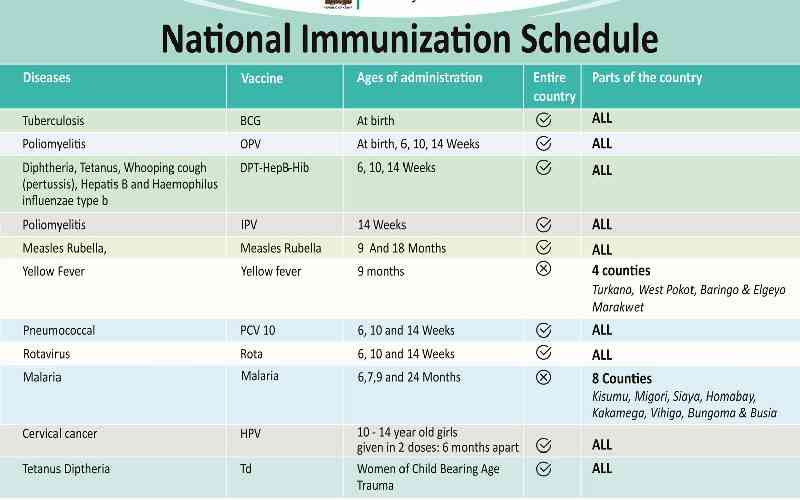
In its inception in 1974, the Expanded Programme on Immunization (EPI) focused on protecting all children against 6 childhood illnesses. Still, today, this number has grown to 13 universally recommended vaccines across the life course, and 17 additional vaccines with context-dependent recommendations. In just 5 decades we went from a world where the death of a child was something many parents feared, to a world where every child - if vaccinated - has a chance to survive and thrive.
In Kenya, The National Vaccines and Immunization Program was established in 1980 and currently provides 14 vaccines and 5 non-EPI vaccines (Hepatitis B, Anti-snake venom, Anti-rabies, Yellow Fever and Typhoid vaccines). These vaccines are provided to more than 1.5 million infants and a similar number of pregnant women and 700,000 young girls every year through a network of 9,500 health facilities - Public, Private, Faith-based and NG0s, FREE OF CHARGE. This year, the world will mark World Immunization Week under the theme, "Humanly Possible: Saving lives through immunization to celebrate 50 years of EPI - recognizing our collective efforts to save and improve countless lives from vaccine-preventable diseases".

World Immunization Week is also an opportunity to highlight the collective action needed to protect people from vaccine-preventable diseases. WIW will also shine a spotlight on the need for countries to ramp up investments in immunization programmes to protect the next generations.
Kenya marks the World Immunization Week from April 24-30, 2024 with a national consultative meeting and performance appraisal meeting culminating with a launch event in Nairobi.